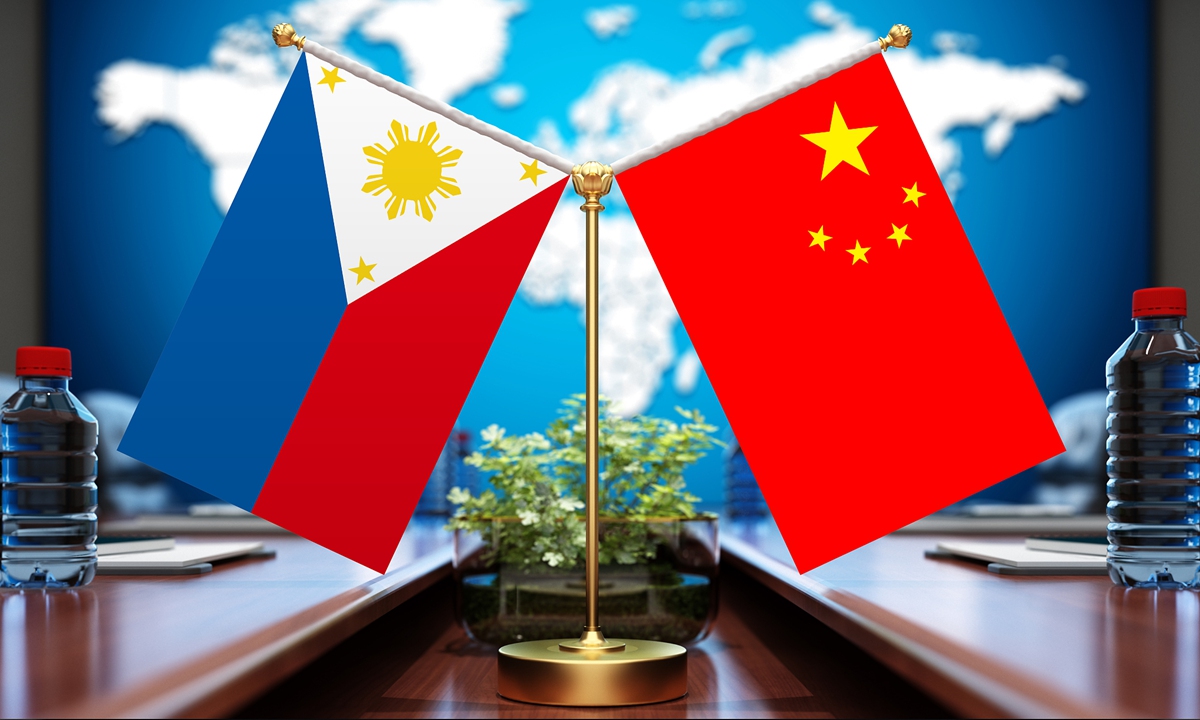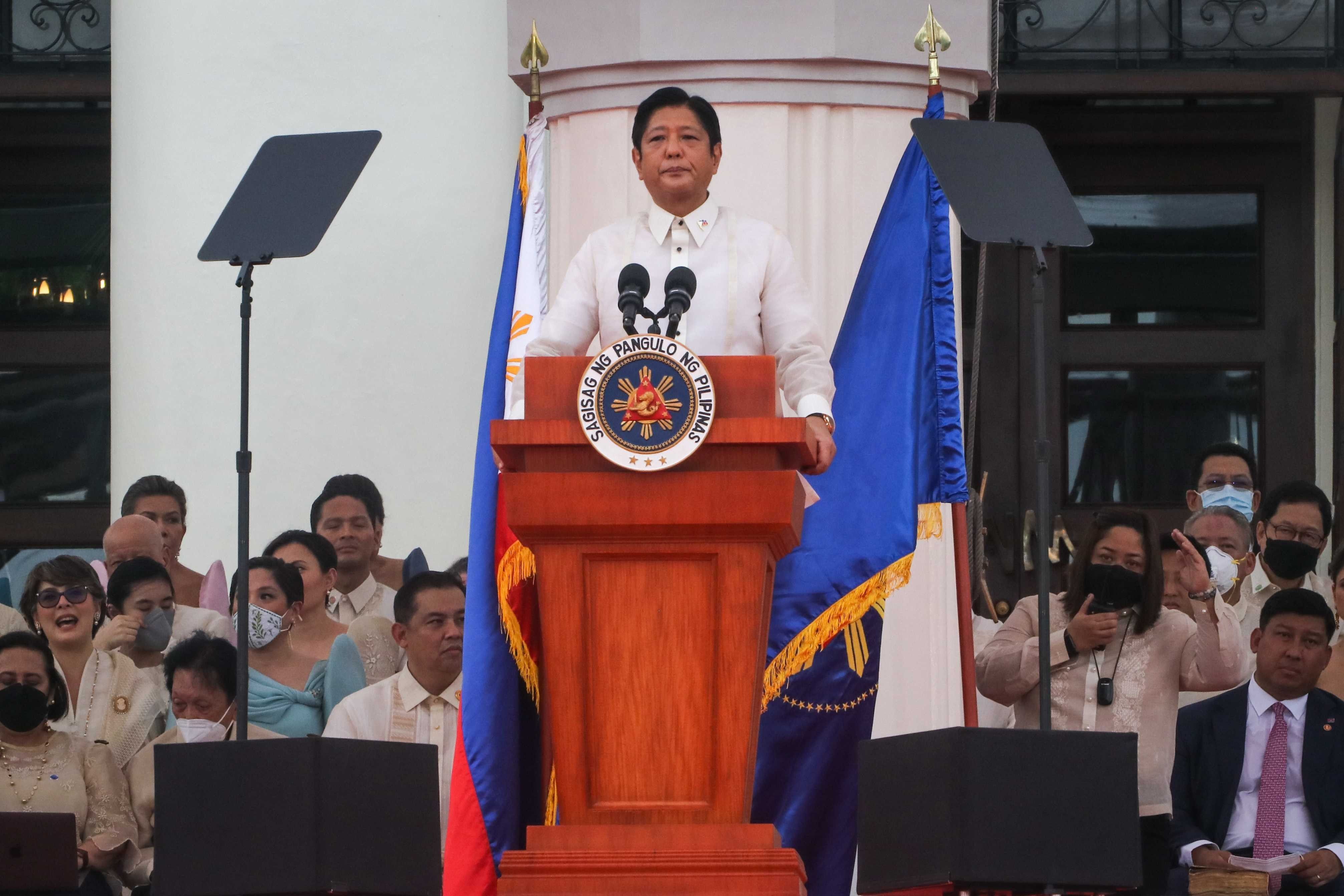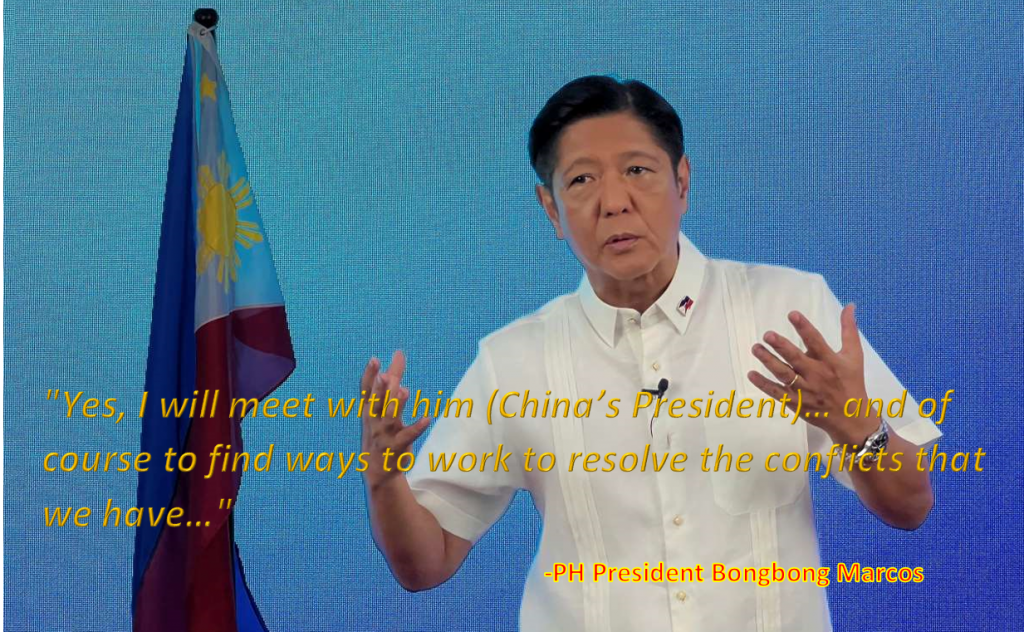When he meets with Chinese Foreign Minister Wang Yi on Tuesday, Philippines President Ferdinand “Bongbong” Marcos Jr. said he will “find ways to resolve the conflicts” with China.

During the meeting, Marcos told reporters in Malacaang that he intends to “strengthen ties between China and the Philippines”

“Yes, I will meet with him and the agenda I’m sure will be to strengthen ties between China and the Philippines. And of course to find ways to work to resolve the conflicts that we have,” he stated “.
Marcos stated that he is open to “exchanges” between Manila and Beijing that include discussions in other sectors, such as bringing more government-to-government agreements and partnerships through the private sector, to fix problems between the 2 nations.

China has become a partner in the Philippine government’s infrastructure projects under the previous administration’s Build, Build, Build program.
![ANALYSIS] 10 Build, Build, Build projects that started before Duterte](https://assets2.rappler.com/2021/06/bbb-credit-grabbing-inline-001.png)
“One of the ways that I have consistently suggested is that we have our relationship not only on one dimension, ‘yun lang (only the) West Philippine Sea [dispute],” Marcos said. “Let’s add to that. Let’s have cultural exchanges, educational exchanges, and even military exchanges if that will be useful.”
![ANALYSIS] 10 Build, Build, Build projects that started before Duterte](https://assets2.rappler.com/2021/06/bbb-credit-grabbing-inline-009.png)
“Of course, the G2G (government-to-government relationship) has always been there, and the private sector joint ventures have also been there. But I think that the more we do with that, the more it will help resolve the issues,” he added.
The president of the Philippines urged the members of the Asia-Pacific Economic Cooperation (APEC) and the Association of Southeast Asian Nations (ASEAN) to “be active” in terms of “trying to find ways to improve relationships” because they, as “stakeholders,” are crucial players in regional geopolitics.





